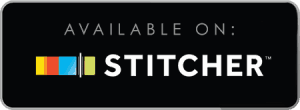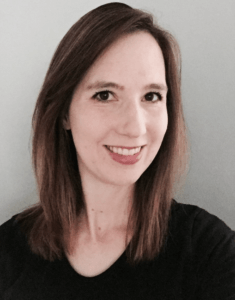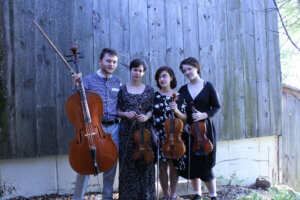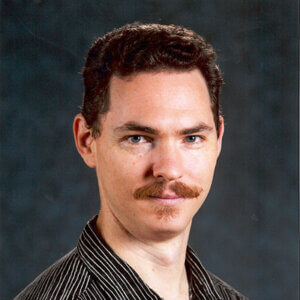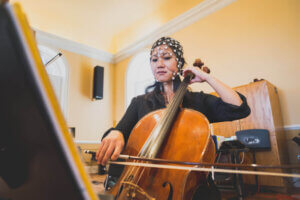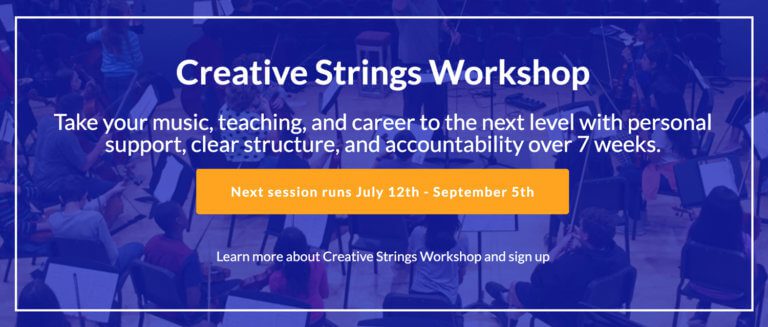Table of Contents
On Today’s Episode…
Join us with Marlene Cruz Lozano as she talks about her experience rediscovering passion for the violin, teaching, and her Violin Bootcamp, which centers adult women violin students, their goals, and needs.
When Marlene Cruz Lozano first joined my Creative Strings Workshop she had recently quit her 9-5 pm job in a non-music field to pursue her newly reignited passion for violin playing and wanted to develop a studio that would enable other women to pursue their musical goals as well.
She founded the website www.violinbootcamp.ca, which caters to adult violin students, particularly those with busy lives whose playing and passion for the music may have fallen by the wayside.
If you want to reconnect with music like Marlene or you want to enjoy playing for yourself without anxiety, I think you’ll connect with her story.
Our discussion includes...
- What motivates adults to restart playing violin after lapsing? (0:42)
- The importance of rediscovering a long lost passion for playing (1:40)
- Working through imposter syndrome (3:00)
- Having a positive mindset and finding motivation outside of “being good” (4:58)
- The varying goals that adult students have (6:53)
- Teaching adults using a goal-oriented style (8:36)
- The similarities and differences between teaching kids vs teaching adults (13:44)
- Lessons learned from opening a studio to serve adult women (16:23)
- The importance of flexibility and learning to practice in a time-efficient way (17:02)
- Marlene’s choice and motivation to focus on helping women relearn to play (20:00)
- How personal experience and struggles influence Marlene’s teaching (22:14)
- Feeling burnt out from working a non-music job (23:32)
- The influence of Creative Strings Workshop on Marlene’s approach to her studio. (28:41)
- What would you recommend to a teacher and/or player who wants to branch out from classical music? (36:45)
- How can people learn more about Marlene? (38:30)
- The four biggest points that Marlene tries to teach her students (41:38)
0:00:00.2 Christian Howes: Marlene, it’s great to see you. Thank you so much for making time to be with me today and talk about this. I’m really excited about the work you’ve been doing in your teaching, and I understand that after having been teaching kids for a long time, that in the last few years, at least, you’ve also been teaching a lot of adults, and specifically adults who, maybe they played when they were younger, but then they took time off and then now they really wanna start playing again. So if that’s right, I guess, first of all, I’d like to know, what have you found out about why do these people want to play again, why did they stop? And maybe I’ll just start with that, why do they wanna come back and play. Why should they? They have other jobs. Why do they wanna play the violin?
0:01:00.0 Marlene Cruz Lozano: Can I come back again. Well, first, thank you so much for inviting me. This is really such an honor and I’m very excited to be here, and to answer your question, well, I actually have focus particularly in women that haven’t played for a while, it just became a little niche for me, maybe because there’s some reliability and the question of why they should come back to play I think in the case of my clients is mainly that it’s a big passion for them, and they somehow, along the way, they lost the way or the access or just life got in the way, which is most of the time is life got in the way and they’ve been wanting to and they just can’t for a number of reasons, and my job is to help them try to figure what those reasons are. If that answers the question so far, it’s mainly a long lost passion.
0:02:04.8 CH: And so, yeah, why, what are the answers? Like, what do they discover? ‘Cause I guess maybe if people say, well, I just wanna play the violin, well, why do you wanna play the violin. Does that become more clear for your students after they start working with you or not.
0:02:25.1 ML: I think so, I believe for them to know what those answers are, first, we have an actual session that we… I have very specific questions because I have to go through that process myself, and that’s how I ended up actually teaching the way I’m teaching and working with the people that I’m working with. And it’s basically a coaching session, and I really guide them through blockages that a lot of times is Impostor Syndrome, most of the time is Impostor Syndrome, I think that is a big part of it, sometimes they’re just starting late. Yeah, go ahead.
0:03:04.2 CH: Oh, Impostor Syndrome, do you mean that they feel like they’re not good enough to play and that’s why they stopped?
0:03:10.2 ML: Yeah, sometimes it’s they don’t feel good enough. Sometimes it’s maybe just that they are so busy with their own life, just general normal life that they feel they don’t have the time to define hours in the day to practice that that’s very instilled in your brain too, when you learn classical music in particular. Most of the time, we grow up thinking, we have to practice, I don’t know, one hour minimum or three hours a day, and when you’re… In my case, I work with busy women, and particularly moms maybe a lot of them homeschool or are professional women that just don’t find the time to have one hour a day, so a lot of the feedback I get is, for example, they played, most of them had done high quality play, like intermediate or advanced people is who I’m working with mostly. Most of the time they played in high school to a certain level, or even college, they had done some college or even they have a degree.
0:04:15.6 ML: I even have one person that at some point had a Masters in Yoga and she just, she was working on like a gym receptionist, or something like that, and that really breaks my heart because these are women that have made so much effort to play in the first place, and just life got in the way. It’s is not a big reason necessarily. Maybe they got married, maybe they got a huge job that has nothing to do with music, maybe they have a double major and then the double major took them another place, or sometimes it’s just babies or going back to school, things like that. It’s just life. Regular life. [laughter]
0:04:57.5 CH: So there’s two questions that come up for me around that. One is, how good do you need to be to justify playing the violin? How good does… What do you think the answer to that question is?
0:05:21.4 ML: Aha, that’s a good question. I don’t think you need to be good at all. I think you need to love the violin not necessarily be good or bad. And I think there’s a misperception. I think anyone can do well doing anything, if you truly want to do it. That’s the first thing. So if you have the desire but you don’t believe you can do something, then you won’t do it. This is very simple. So you have to find it within you. Why do you love violin in particular, this is what we’re talking about, and then figure a way to simply do it. I know it sounds very simple, the way I’m saying it, it’s not necessarily that simple. But I believe, I really believe that anyone can learn to play to the best of their abilities, and it’s just a matter of mindset sometimes, and most of the time it’s mindset, honestly.
0:06:17.6 ML: So I don’t think that you have to be excellent already to continue to play violin, you can improve to the best of your abilities. So that’s a big misperception, I think. And I believe that it’s mainly mindset that gets in the way, and when you fix the mindset, then you can unblock those things, and people can play. I think that’s a big thing to explore, even for professional musicians I think. Yeah, there’s a lot of blockage in mindset as well.
0:06:54.0 CH: Do you think that… Do most of your students, your adult students, do they want to perform either alone or with the other people, or do they just want to practice like what is their ultimate goal? Is it just to spend time with the instrument and just derive pleasure from just playing every day, or is it connected to some kind of goal to do a performance or to connect with other people?
0:07:27.1 ML: I have a range of people, some people want to go back to orchestra or community orchestra, some people really wanna do their Suzuki teaching training, some people just wanna fiddle and just have fun. I have musicians that are like piano teachers and they just have violin as a second instrument and they wanna teach better violin they teach violin as a second instrument. So they wanna improve their teaching. I have people, like I said, with masters in viola, that wants to just simply play again because they just stopped playing and they are working on something else, so they just wanna return. It’s a very… A lot of variety in that sense.
0:08:12.2 CH: So do you think that people can get just as much satisfaction from just practicing on their own every day without ever connecting with other people and jamming together or without ever performing? I’m honestly curious, I wonder if there are differences for people or yeah.
0:08:36.5 ML: Yeah, that’s a very good question. I think so. I think there’s a satisfaction. I’ll give you an example. Now, maybe this doesn’t qualify as not playing with anyone because in my group we play with each other beautifully. [chuckle] But one of my clients came back, came to the course wanting to play the Bartók Romanian dance, the first one, and she was just telling me when we started that she originally was kind of sad and disappointed because when she was doing it, her teacher said no, it’s too difficult, so she put it away and that was maybe high school or whatever, and then she just never did it, and it was one of her dreams and so when we do the course, I ask them always to set up their dream, their big dream. What they wanna work towards, and then we set up little dreams or little objectives to get you there.
0:09:34.7 ML: So hers was to play that piece and by week four she was playing it, and there was so much blockage at the beginning thinking, I really wanna play it, but I’m just gonna do it, but this thing my teacher said one day, those things. Just the fact that she had put it aside for so long, and then by the week three, she was playing it, not perfect, but she was doing it. I think she was really happy with that. And so I decided, okay, let’s record it. If you wanna really play it record it, and then she kind of disappeared for a few months, and then when she came back she could play it, and I have this section in my group that we do creative playing and recording projects just for fun, and she decided to record it with me, so one of the clients that I have was a pianist, so originally they were gonna record it together, and the pianist ended up leaving the group for some reason, so I said, okay, I’ll play with you. So we recorded, she made me practice the piano [laughter] and we just recorded together.
0:10:44.6 ML: So in a way, I guess we played together, but not really because she recorded on her own and she did it all on her own. When she was ready, she just sent it to me and then I just put it together, so I think she got satisfaction out of that and she didn’t do it with anyone, she just decided to do it by herself.
0:11:00.8 CH: Do you think that adult students in particular resonate with that type of teaching for any reason or not?
0:11:08.2 ML: No, yes, absolutely, and I think this is the biggest takeaway for me from working with you, and I always mention you to my students because I always say, my mentor, Chris is this. [laughter] And then I honestly think that. It has been so, what’s the word I’m looking for, I wanna say validating to have worked with you through that process because I’ve never been a very traditional teacher and it’s hard to be a little bit out of the box and to find validation in what you do, so I was always already kind of toying with certain things, but you really gave me a framework, so that kind of really helped me implement that in my teaching, so I’ll give you a very good example. Last night’s session.
0:11:55.7 ML: I have one of my members working on Bésame Mucho, and she’s been working on it for a bit, but she was telling me, I’m very German playing, and she says, I’m very strict, but I wanna be more fluid and so on, and I said, well, we’d have to find your Latin passion somewhere. So she chose a piece, she chose Bésame Mucho and I just let her go with it and she came back last night and she’s like, well, I decided to do it in this position just because I wanted to sound this way, and she expressed what she wanted to do, and then she says, you know what, I just want it to sound… I have this in my mind. I want it to be like a tango beat, and she came up with that by herself, I said, just go for it. So because we have this platform, we record things, she decided, okay, maybe I’ll do a beat in the background, and then record it and then she just decided to and I said, so for it and we’ll do it, and she was so happy. And that’s what she wanted, and she’s been always playing technique and classical pieces, and she just came on that to that conclusion on her own, I provide material, but she chose to do that, she could be doing other things, but she chose to do that.
0:13:09.4 ML: So I think it’s really valuable, and even for me, everything we have done with you in the two courses that I’ve taken, it couldn’t be more enriching I think. It makes me a better musician, and I think it makes all of us a better musician, it’s just that sometimes we just don’t have the access sometimes. Like I wanted to learn improvization for many, many years, and I had some accessibility, but not until I was an adult. So if I had it when I was a kid, it would have been really fun. I would have done so much more, I think.
0:13:41.3 CH: And so I guess these are things that you also do with the kids that you teach, ’cause you also teach a lot of kids too, right? Is there any difference between teaching kids and… I mean, there must be some differences between teaching kids and teaching adults, so I’m curious if there are any that leap out for you?
0:14:03.8 ML: Well, yeah. I teach in an organization, the name is Orchestra, and they work with children that don’t have access to lessons. So it’s a really cool organization. I really enjoy working for them because they give the lessons for free to the kids, and I think the kids really value that and that’s… It is just really nice to be able to give them something extra, not just… I don’t know, Suzuki or… [chuckle] Not that there’s anything wrong with it but I think it’s limited. It’s awesome, but it’s limited, and I’m saying this being a Suzuki parent myself. [chuckle]
0:14:47.6 CH: Right, right.
0:14:48.8 ML: My daughter, for example, she did Suzuki for four years, and we loved it, and everything. She got tired of it and she quit and she’s not interested anymore, and me being a violinist, I decided, “I’m not gonna push her,” because I was pushing her too much. And when she heard what I do with the kids or even things I do with you, she’s like, “Well, if I had been doing that, I would have stayed.” [chuckle] So, it’s just one of those things. So what we do with the kids, or what I try to do and Orchestra is very open to exploring other genres. In fact, their curriculum is really interesting because they add composition elements. So I love adding composition elements or improvisation, and now that I have more tools that you’ve given me, it’s really fun because the kids get it. And to a very little extent they can do many things but short and so I approach it similarly both to adults and kids, but I think the difference is how much I give them and depending on what they can handle, but most of the time, they learn really fast because they don’t have the mindset barrier. They can just learn.
0:16:01.2 ML: And whether an adult struggles more like last night with my student she was saying, “Well, I wanna play Bésame Mucho, I was gonna play it with a metronome, but then I decided not to.” Like, she was just double guessing, right? And I think it’s normal because we’ve been trying to do certain things and it’s hard to get away. [chuckle] So, I think it’s really valuable either way for anyone.
0:16:22.7 CH: Yeah. So when you decided to start running the studio specifically for women that had put their violin down for a while and have come back, I’m curious, first of all, I’m curious, what are some of the biggest things you’ve learned from them as a teacher? Is there any things that come to mind?
0:16:57.2 ML: Yeah, I think definitely, I think when you give people the tools they need and the inspiration, and just give them a little flexibility, the things they do are amazing. And I think it’s just allowing them to make mistakes. [chuckle] It’s one thing that’s really important. Like, they don’t… To me, I always tell them, “You don’t have to apologize if you did something that you think either a mistake or you don’t have to… ” I just help them to practice differently I think is one of the things, and for me, practicing more efficient, also practicing things that you want to really practice is important in our case, because we don’t have the luxury of having three, four hours of practice. Often I teach them to practice seven minutes per day, so it’s a very specific way of practicing, and for that, you have to be hyper-focused and you have to be efficient, and you have to know why you’re practicing what you’re practicing. [chuckle]
0:18:01.1 CH: Wow.
0:18:01.3 ML: So it’s important because for them, that’s how they are successful. They can fit between washing dishes and putting the kids to bed, they fit 15 minutes and they do the thing they do. So it’s important I think to be motivated, but for that, you have to also give a little freedom on what they are doing, and also a little bit of thing, obviously some content that they can actually work on that will be helpful. [laughter]
0:18:30.0 CH: Yeah, well, but it also, it’s interesting ’cause it almost reminds me of more of like quote/unquote “Just I guess, life coaching,” which I don’t personally love that word, ’cause I feel like it means different things to different people, but it sounds like… ‘Cause it sounds like you’re giving them… You’re just being present to them and giving them feedback and some accountability. I wonder if it helps that they know that this is specifically for them, as opposed to if they were joining a kid’s studio like if it was a Suzuki studio for kids and yeah, I’m a Suzuki dad too, and I’m a Suzuki kid, I love Suzuki, but so nobody’s… We’re not knocking Suzuki but…
0:19:16.2 ML: No, no, no. I love Suzuki too. [chuckle]
0:19:17.7 CH: Yeah. [chuckle] Right, right, right. I know. But I wonder if it helps them because as you’re saying, it’s really flexibly designed for them being adults also being women. Does that help them somehow to not be in a studio with kids and feel like an outsider?
0:19:41.1 ML: I think it does, and I can tell you why I chose women because I even had people question me on the campaign. Sometimes people in my Facebook page will ask, “Why don’t you help men?” And the answer to this, “I have helped men many times. I worked with probably even more male students before when I was working for other studios.” So it’s not about why women or why men, but it was about seeing the lack of space for certain, for women. Because most of my male students came prepared all the time. Somehow they figured it out. Whether they have more, maybe men, I don’t know, can focus more [laughter] or I don’t know. Like, for example, my husband always finds time to work out. Well, I don’t know it so much. Also, he’s an athlete, so that helps. But the point is that when I came down to really figuring out who I wanna help, when I created the program and kind of went through the process of narrowing the same niche, I really had to think, “Well, who can I help more or who is more similar to myself?” And I could give more value to this group of people for many reasons.
0:21:00.4 ML: One, in our sessions we even have sometimes, kids in the background jumping, asking the mom for a snack during masterclass. Like, she’s doing something for us. It happens so many times. We all are in the same situation. If we were in a different situation and you have a group of other kind of people, a lot of people wouldn’t understand that. I’ve had ladies show up playing with nose strips. It’s because we are like a family there and we understand and like you know what? I, this… Yeah, she told me, one of my students showed up like that, she says, “You know what? I wasn’t gonna practice if I didn’t do it in that moment.” And because they do accountability for me, she sent it like that. And she says, “Apologies for the nose strip. I’m just doing this because it’s gotta get done right now.” So I do think that wouldn’t have happened if it was a different kind of group. I think that’s the value in my case. Yeah, it’s just as simple as that, I think. I just provide them the space.
0:22:00.5 CH: I think that differentiates it somehow, just the fact that you’re making this studio for adults and you’re really catering it to their whole life, their whole person, their whole struggles. Were there any, I wonder if and whatever you’re comfortable sharing, if there were any struggles that you felt, that prompted you to create this studio or yeah, and/or if there’s been something that it’s helped you with in your life, for example, as you’ve been running this program.
0:22:45.3 ML: Yeah. Yeah, definitely. The whole program is based on personal experience for sure, just from the same, same same similarities. Starting late in life to play violin. Being a passion that I had that I couldn’t let go. Feeling that there was a deadline that I had to achieve certain things by, I don’t know, before getting married or before having kids. And then feeling that I didn’t meet the deadline and then kind of giving up because it was too late. There was somewhere in my mind that said, “It’s too late.” Impostor Syndrome, for sure. Imposter Syndrome.
0:23:32.4 ML: And I think the fact that just life getting in the way too, finding a different job and getting stuck doing that job. I’ve always been self-employed or freelancing, teaching, but at some point I did get another job and completely took me off music. And that was really hard to swallow. And I think that became, it was a busy job, so I had a burnout. And during that burnout, I really had to really sit down and think, “Okay, what am I gonna do because this is not working?” And the burnout was a blessing in disguise because it really made me realize that I wanted to do music regardless of to what capacity or what level. I just have to figure a way to come back to music. It’s what I love doing, and what I’m trying to do, so why not. [laughter]
0:24:26.7 ML: But if I had taken the normal route of okay, I’ll try to get into an orchestra where first of all, there’s no real places where I lived where I could have gone into an orchestra. Space is limited. I freelance all the time, that’s okay. I can play weddings, but there’s just so many weddings I can play. So at some point, you have to really open up other spaces, and this just happened to be one of them.
0:24:56.0 CH: So if I understand correctly, you have like a quote/unquote “Normal 9:00-5:00 type of job,” you got out of music. And then you were like, “I can’t stand this. I wanna go back into music.” You felt lot of fears about how to do that. But then you pushed through it, and you created this studio, this teaching program and wow, that’s amazing. Yeah, and…
0:25:17.7 ML: In a nutshell. I’ve never been to a 9:00-5:00, but it was definitely a job that I had working for someone else and yeah, it’s basically it. I did work many years before just teaching music full-time. Then, when the kids came, I let that go. And I did this job because it was more flexible, and I didn’t want to be teaching in the evenings because then you never see your kids. And that’s why I stopped music originally. But then I just, the other job just really turned out to be that and…
0:25:52.7 CH: Yeah, yeah.
0:25:54.3 ML: Going back was the hard part because, like you said, it’s just the fact that you have been out of the music scene for so long and the contacts, you don’t have them anymore. You’re out of shape. I was so out of shape too. Like just that, that was the one thing that made me do this program because I was physically out of shape but also musically. I just couldn’t play what I used to play, and I was really dedicated before. So that was a really hard thing to accept, that I couldn’t play three hours with two kids anymore or however long I was playing before.
0:26:30.5 ML: And through the burnouts I actually if I may share this I gained a lot of weight. It was really difficult to actually, to go through that process. Burnouts are really something that it’s not something easy to deal with necessarily. Like, sometimes it’s very hard to get out of one when it’s a really deep one and the way I did it was to doing just little mini workouts because I just couldn’t handle anything else.
0:26:57.3 CH: Wow.
0:27:00.5 ML: And I just came to the conclusion, if I have to get in shape and go back to having a healthy life, I have do little workouts of seven minutes, four minutes, and that’s what I did for a full year and I lost 12 kilos. [laughter]
0:27:12.9 CH: Wow.
0:27:13.8 ML: I realized, okay, if we can do this with our body, why cannot we do it with music, so that’s how I got back into playing myself, just creating things, routines that I could focus really, really clearly on, and this is how the program was created basically.
0:27:30.9 CH: Wow. And then within, when you, I mean, it’s amazing to me, all that’s amazing, and by the way, it’s so kind of humbling for me to recognize as a man, how much I take for granted and don’t really have to go through as a woman, just as you’re telling me about this, just thinking about all the things that women go through that men don’t go through, so that’s really…
0:28:00.9 ML: Maybe they do we just don’t talk about them as much. I don’t think it’s necessarily more difficult for women, I think it’s equally difficult for humans, any kind of human, but I just happen to understand this particular situation and that’s what I had. [laughter]
0:28:14.7 CH: Got you. Right on. Right on.
0:28:17.3 ML: I think you guys have different difficulties. [laughter]
0:28:20.0 CH: Sure, sure. Okay, fair enough. Well, it’s enlightening to me, nonetheless, just to hear about things that maybe women talk… Maybe when women are in a space together, they share a lot of these things, and maybe I don’t…
0:28:37.5 ML: We don’t invite you maybe. [laughter]
0:28:41.3 CH: Yeah or maybe I haven’t paid attention, so it’s helpful ’cause I wanna pay better attention to… I wanna understand those things. Well, some of my students are women and I wanna be able to help them in ways that are appropriate. That I wanna be able to relate to them. So it’s just really interesting to hear these things. But when you, there’s so many things that you had to transition, to quit your old job, you’ve got two kids, you’re getting in shape, you’re getting in shape musically, and then you’re gonna start a business, but also you’re gonna provide this new type of service to adults, and so I guess one side is kind of like the business organization side of a studio, like what do you offer people, how do you do it? The other side is like the musical curriculum side, and I wonder if are there any things about how to deliver online educational experience and/or the types of curriculum or exercises that you have your students… Are there any… ‘Cause we’ve worked together a lot, and I’m just curious if there were any of the things that we worked on that through the Creative Strings Workshop that were like stuck out to you as being like, okay, here’s something that helped either on the delivery side or the musical side.
0:30:07.9 ML: Yeah, absolutely. The delivery side. Just seeing you work with all of us, regardless of the level, that was an eye-opener for me, the way I was teaching before was kind of group lesson masterclasses, but I really asked everyone to play in turn, things like that, but you really opened my eyes to like playing more as a group in mute and really, they have a chance to work on their thing, without worrying about who’s listening or not, and that’s very often in… I can see my students now, or the women that I work with too, the clients, they just do it now and that’s original, like I’m explaining something to someone and they go and practice the same thing, regardless whether it’s something they are working on, they just join in the background and they’re learning and they’re practicing a higher profession. So that’s one thing.
0:31:01.9 CH: So that’s in the group lessons, just having people play more of the time basically.
0:31:07.6 ML: Yeah. And I remember one of our first question sessions you said that have them play, they’re there to play, whereas before I was really focused on coaching them, but having a theme prepared and like I was really making my life complicated, so you definitely simplified my life on that regard. You helped me also a lot by reusing material and that was an eye-opener too, because I work so much less. [laughter] And it’s, and in the way I have my courses set up, I have an app, so the app is where I deliver my content, and I had already a course done, but now my app has grown so much since I’ve done the courses with you, because it’s so much easier to create material that’s valuable for them and that you’ll reuse it at some point, one or another, I can send them in this section, in this module is this thing so you go there and find it and they do and they get the solution and that I think before I was more on the mindset of, oh, I have to keep… I don’t know, delivering physically, even though they were doing it already, so it changed completely how I’m doing things for sure after I worked with you. So thank you so much. [laughter]
0:32:26.7 CH: Oh no, please. Yeah, no, you’re welcome. It’s part of the reason I invited you to be here is ’cause I’m so impressed with the way that you are teaching and the way you’re serving your students, let alone running a multi-faceted busy life. And but I think also because it’s an inspiration to anybody listening that so much is possible, if you want to deliver educational, meaningful experience, whether to adults or kids, whether online or offline, and I think that’s kind of one of the… It’s really valuable to get your testimony about that, because if I’m hearing correctly, like you have found that it’s been easier for you to create your own educational content in your voice…
0:33:27.8 ML: Yeah.
0:33:30.2 CH: And repurpose it and serve more people with it, freeing up your own time. You’ve been able to create… And I’m just interpreting, and please feel free to correct me if I’m wrong, but you’ve been able to give your students feedback, accountability, personalized experiences, community experience, giving them time to be online where they’re playing, they’re actively getting their workout, all these things, but you’ve been able to juggle that with all these other things in your life, because you’ve got different strategies that you bring into place that make it a lot easier than the maybe we’ll say the traditional way where it’s like all about one-to-one time, which is harder to scale and fit in.
0:34:12.6 ML: Absolutely, I’m never going back to that. I was already not doing that when I met you so much, but this is even more… I’ve been pointed to what I wanna be doing, but also I wanna add, it’s not just so much… Yes, I create, it’s much easier now, you’ve opened my eyes to so many things too, but the one thing I find even more valuable is what it does for me as a musician, because I don’t think I was taking enough advantage of the time preparing content for my students for my own growth. And that is one of the things that I see a lot in the consultations that I have with women that come, a lot of them are music teachers. That’s the main issue. They don’t have time to practice themselves because they have big programs and they have all these things. That was a big eye-opener for me. And even just to now, even though I teach people practice more efficiently and I can do it myself, but the creative part I was struggling with.
0:35:20.9 ML: And that’s the part that I think I really gained because I didn’t know, I knew I could do it, but I didn’t know how or like how I continue to be creative and continue to grow as a musician as I’m creating this content and not just get stuck on practicing first position things or X… You know. So you’ve really opened that for me because now I can do really whatever I want. Honestly, so what I do is, my student requested you to play Dynamite, for example, and that’s a challenge. It’s a difficult song, and so when I saw you do that, it really opened my eyes too because it was a challenge for you to practice that.
0:36:03.0 ML: And I said it in the video, and I could bring it down to their level. I bet you I could bring it back and they’ll get a lot out of it for a long time because they are little kids, they still have a lot to learn, but for me to see you do that, it really opened my eyes because see, after that, we… I kept just asking the kids, “What do you wanna do?” And then they would give me a song and it’s a song I don’t know. So, one, it’s making me hear different music, it’s making me explore other genres, it’s making me create content that I am enjoying because I am more into the creative aspect of music anyway, so for me, it’s a win, win, win. [chuckle]
0:36:45.2 CH: Yeah, that’s great, that’s awesome. I guess I’ve got probably maybe two more questions, or you may have already answered these, but I was gonna say, what would you recommend to a teacher and/or a player who wants to branch out from classical music, anything that would strike you as one thing that they could do?
0:37:15.7 ML: They could definitely work with you. That’s the first thing I would recommend. [laughter]
0:37:17.4 CH: I really set that one up, didn’t I? Okay.
[laughter]
0:37:23.1 CH: What…
0:37:24.4 ML: No, I’m serious. I’m serious because look, I had followed you for I don’t know how long before I decided to join you because for me you are up there. One day I learned… And it’s been a whole process, right? Like I said, breaking through the barriers, the mindset barriers and just believing that I could come back to music and all these things to the point that you came up… I was able to join when I was ready to join your program, and it took me a few years. [laughter] It’s like I had it for a long time in my mind, but whether you make yourself doubt because you cannot do it or you’re gonna run off, or it’s too expensive because that’s another mindset, whatever the mindset is, I think it’s just a matter of really seeing what your problem is, why are you really not joining if you wanna join a program like yours, for example, or a program like mine or just playing.
0:38:24.8 CH: Yeah.
0:38:26.5 ML: And once you know that, then you can take that step.
0:38:30.3 CH: Yeah, no, that’s great, that’s great. Yeah, I guess it sounds like ’cause part of what I was gonna ask is, what would you recommend for teachers who want to expand their teaching practice or find more satisfaction and fulfillment from their teaching and playing, but obviously, if they could come and work with you, they could come work with me. But I think a lot of the things we’ve covered today, if… Talking about to expand the practice with the things that you just listed a few minutes ago, and these short little workouts, I think that’s a really inspirational takeaway for teachers as well. I guess my last question would be, how can people learn more about you? How can they connect with you?
0:39:21.0 ML: Yeah, what my domain is… The name of the program is Violin Bootcamp, that’s the name of the app.
0:39:28.4 CH: Violin Bootcamp.
0:39:30.2 ML: Yeah, and the domain is violinbootcamp.ca. And I do have an app on Android but it’s easier to find it on [0:39:38.1] ____ my account because I work through, I offer a free consultation, so basically, you can find me on that domain and book a free consultation with me and see whether I am the right fit for you and if I can help and so on. So that’s the easiest way. And then I’m in social media as well.
0:40:00.3 CH: Violinbootcamp.ca, book a free call with Marlene and/or find… The way it looks on social media, is it the way… Well, for me as a, I don’t know, North American, well, I don’t know how to say it, but when I see your name, I naturally used to call you “Mar-LEENE”, but that’s just because the way it’s spelled M-A-R-L-E-N-E, and then it’s Cruz, C-R-U-Z and then Lozano, L-O-Z-A-N-O, is that how you go by on the social media?
0:40:35.8 ML: That’s right, on Instagram, yeah, that’s my handle is @Marlenecruzlozano. On Facebook it’s, I should know it by memory, shouldn’t I? [laughter] But you can just actually search my name, but the actual handle on Facebook is, I believe Violinist Ottawa.
0:41:00.7 CH: Got it. Yeah, yeah, right. Yeah, no, I’m the same way.
0:41:02.6 ML: Yeah, I never use it. [laughter]
0:41:03.0 CH: Right? I can never remember mine either, ’cause they’re different too. Actually, I know it’s crazy. Well, is it…
0:41:07.3 ML: I think there’s a person that’s Ottawa Violinist, but I’m the other one, it’s one of those two.
0:41:12.9 CH: Yeah. Is there anything else you can think of that we didn’t cover today or that you’d like for people to know?
0:41:20.7 ML: I think we covered a lot, but I think my biggest takeaway I made four points that I generally teach my students, I don’t know if you would like me to just mention a few.
0:41:32.2 CH: Yeah, please. Yes, please.
0:41:34.8 ML: And I made an actual list because I knew that this would be interesting, but the four things that I try to help them with is one, to be persistent. Second is to be resilient, and the name of my community is Resilient Violinists for a reason. To me, to begin with, the meaning of resilience is to be able to bounce back and to rebuild yourself and go back, reset yourself, so that’s the second thing I try to teach my clients. The third is to be relentless, and the fourth is to be fearless. So I hope that somehow helps a little bit. [laughter]
0:42:14.5 CH: That’s beautiful. That’s beautiful. Yeah, no, it’s wonderful. And again it brings me back to this idea that you’re helping people with the violin, but it’s really connected to their whole being and their whole character and approach to life, and I just think it’s wonderful. That’s something I’m really interested in figuring out how to do. And I think that everybody, all of us in this, our community of musicians and teachers, it’s a healthy place for us to be to be thinking about how can we connect, what we do…
0:42:51.4 ML: One of the… One of my Mexican [teachers], I consider him one of my best violin teachers. He was genuinely… That’s a hard word to say. He really was a life-changing person, because he saw violin as a lifestyle, not as an instrument you’re playing. And every class I left after being with him was, I kid you not, it was life-opening. It was sort of like going to a guru or having a yoga meditation class, and every lesson I left made me wanna go back and practice what he had told me because he was related somehow to life. So I thank him because again he’s helped go through this process.
0:43:44.7 CH: That’s beautiful, that’s beautiful. That’s a great thing to aspire to, I think for all of us teachers for sure. Well, thank you so much, Marlene. I really just wanna acknowledge you for the way that you serve so many people, kids and adults alike, and just for everything that you have continued to do to be resilient and to be persistent and to go after this and to create all this. It’s incredible, you’re really a huge inspiration to me. Thank you so much.
0:44:17.4 ML: Thank you, Chris. I appreciate it. It’s much appreciated. Thank you
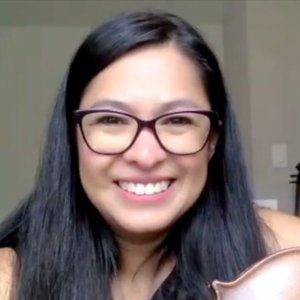
Marlene Cruz Lozano is a violinist and online music educator with a focus on helping adult women return to playing the violin. She transitioned from a 9-5 day job employee to rock star online violin teacher and launched her website (violin-bootcamp.ca)
Check out her Violin BootCamp here
To join our coaching/community of players and teachers like Marlene, check out Creative Strings Workshop
